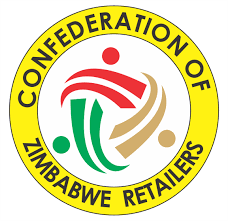FIU, small traders agree on ZiG payments
SMALL traders and wholesalers have agreed to start accepting payments in Zimbabwe Gold (ZiG) following a meeting yesterday between the Financial Intelligence Unit (FIU) and the Confederation of Zimbabwe Retailers (CZR).
The meeting was convened to iron out issues regarding compliance with ZiG payments.
The FIU is an autonomous regulatory body, but within the purview of the central bank, responsible for the regulation and supervision of financial services business conducted in and from Zimbabwe.
This comes after the country relaunched its domestic currency early last month, which had continued to receive some battering as it had no hard or precious asset backing it.
Zimbabwe’s new currency is now backed by a basket of precious commodities, mainly gold and foreign currency reserves, with a combined value of about US$285 million.
While many economic agents, including manufacturers, retailers, key suppliers and other important stakeholders have welcomed the new currency and accepted it for payments, pockets of resistance remain in certain key segments of the economy.
The CZR and several of its members yesterday met with the FIU, which pledged to continue engaging small to medium retailers as well as the wholesale sector to promote acceptance of ZiG as prescribed by law.
FIU director general Oliver Chiperesa stressed in his invitation to CRZ earlier this week that the interface was critical so that small enterprises do not get caught on the wrong side of the law.
“The FIU recently held a fruitful engagement meeting with various large retailers and wholesalers as well as suppliers and manufacturers, wherein the bulk of your membership was not involved.
“It is our belief that smaller to medium-sized retailers, who play a key role in our economy because of their wider reach to the general population, have the potential to contribute more in supporting Zimbabwe’s new currency, the ZiG,” Mr Chiperesa said.
The traders or tuckshops, who operate mostly from downtown Harare and other parts of the country, along with mid-sized wholesalers have operated predominantly on a foreign currency cash basis.
This is despite moving millions of US dollars worth of business, the entities do not pay taxes while they enjoy public-funded services like any citizen of the country.
Other major businesses also continue to demand payments exclusively in US dollars, militating against the Government’s rigorous efforts to ensure a stable local currency.
CZR said the FIU will work hand in glove with the small traders association in promoting ZiG acceptance, but called on authorities to address underlying factors, including resourcing banks to support the productive sectors.
“FIU and CRZ will continue engaging retail and wholesale sector players both large and small to medium, promoting acceptance of ZiG in compliance with the law.
“Enforcement will come as a last resort. Small to medium enterprise retailers and wholesalers (So-called tuckshops) agreed to begin to accept ZiG from consumers.
“The Apex bank will assist in ensuring POS machines are rolled out to SMEs as soon as possible, as most do not have swipe or mobile payment platforms.
“FIU will continue to promote acceptance of ZiG for ease of procurement by small to medium enterprises. Suppliers can also use their internal US dollar sales receipts towards imports since the multicurrency system has been extended to 2030,” Mr Mutashu said.
CZR said education and awareness will be key in the rollout of ZiG, a new domestic currency that was introduced a month ago.
However, it said to instil confidence in the new currency, authorities should treat ZiG, as an equal to other currencies in the multicurrency basket by allowing all taxes to be paid in the local currency alongside USD at the taxpayer’s discretion.
In another statement titled “A path to Currency Stability and Confidence” released yesterday, CZR bemoaned the limited amount of ZiG in circulation (approximately US$80 million equivalent of ZiG).
CZR implored the Government to lead by example to guarantee the acceptability of the new currency by collecting most of its taxes in the local currency.
In his inaugural monetary policy statement last month, Reserve Bank of Zimbabwe Governor Dr John Mushayavanhu said an agreement was reached with the Treasury for at least 50 percent of taxes to be payable in ZiG to promote its acceptance and wider use.
The small retailers’ lobby group also said market sentiment on ZiG would significantly turn positive if authorities persuade fuel companies to accept it as a payment alongside the US dollar.
This would entail “denominating all fees and charges in ZIG to make it the primary currency for local payments, demonstrating Government confidence in value maintenance.
“Currently, the 2 percent IMTT makes ZIG uncompetitive in the informal market given that transactions in the formal economy are in USD cash with zero transaction costs,” the CZR said.-herald









